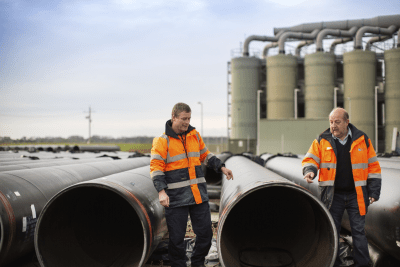Deliver the expansion program
In 2021, the VGPB expanded its goods and services procurement policy framework to include a further 125 agencies, including TAFEs, water corporations and catchment management authorities.
All agencies subject to the 2018 Directions are now under the VGPB, with some exclusions such as health agencies and universities. This aligns the VGPB with the scope of procurement policies for construction and social procurement.
This broader application of VGPB policies is embedding consistent best practice procurement governance arrangements and processes across government. It will also lead to greater oversight of government spending and wider leveraging of SPCs. Suppliers can expect to see benefits such as greater visibility of upcoming procurement opportunities and contracts awarded.
Starting from 30 June 2022, departments and agencies are now required to assess their compliance with the VGPB policy framework under the existing annual 2018 Directions attestation process. To help agencies with their first compliance assessment, the VGPB ran a series of online workshops in the lead-up to 30 June 2022. To see a summary of compliance assessment results, refer to the Compliance section later in this report.
Transition to state purchase contracts
Incoming agencies are continuing to transition to SPCs. SPCs can reduce the time and money spent on procuring commonly purchased goods and services as they offer access to aggregated demand, increased contract efficiency through pre-agreed contract terms, and centralised supplier due diligence, oversight and contract management.
The transition to SPCs has been staggered over 2 years based on agency size. Large and medium-size agencies have mostly transitioned with smaller agencies scheduled to begin their transition towards the end of 2023.
Measuring success
The VGPB is leveraging existing reporting processes to monitor the transition of expansion agencies to its policy framework and SPCs. Performance metrics have been developed to assess the effectiveness and long-term benefits of the expansion program, including data on compliance and SPC transition and spend. Financial and non-financial benefits associated with SPCs will continue to be reported to the VGPB through the existing SPC benefits and value framework.
Expansion agencies have always had access to SPCs. Many were already using some SPCs before the expansion program. The expansion program has mandated their use.
Both large and medium expansion agencies, required to transition from December 2021 and June 2022 respectively, or at the conclusion of existing contracts, have made good progress in transitioning to mandated SPCs, with uptake ramping up in the lead-up to their respective transition dates.
To support their transition, DGS has proactively engaged in one-on-one consultations with each of the large and medium expansion agency CPOs to identify and address any remaining barriers to SPC uptake.
Case study: VGPB’s expansion program elevating procurement at Parks Victoria

Parks Victoria was one of 125 agencies that transitioned to the VGPB’s goods and services procurement policy framework in 2021–22. Following implementation of the VGPB policy framework, the executive team endorsed a 3-year procurement strategy and appointed a CPO to roll out the strategy, raising the profile of procurement within the organisation.
Following the adoption of the VGPB procurement framework, Parks Victoria has been transitioning to SPCs and benefitting from greater procurement consistency, streamlined processes, reduced procurement risk, central administration of the master contract and economies of scale that are driving efficient government procurement.
Parks Victoria is also looking for opportunities to set up internal panels for Park-specific procurements to expand these benefits to commonly purchased goods and services.
“We are still early in our transition,” explained Zoanne Morrissy, Parks Victoria's inaugural CPO, “but we’re already saving time and getting great outcomes from SPCs. These contracts are great for our staff, many of whom work out in the field but still need to do procurement from time to time without being a procurement expert.”
The staffing services SPC, for example, has proven particularly beneficial, as it provides the flexibility needed for seasonal employment surges during the warmer months through a panel of suppliers.
Even access to the stationery SPC is modernising the way staff buy office supplies. Staff can now order online, with most deliveries arriving the next day, eliminating the need for time-consuming drives to pick up supplies.
To support the rollout of the procurement strategy, Parks Victoria is undertaking a capability assessment to identify priority procurement capability needs across the organisation. Parks Victoria is also planning to invest in new systems and, in line with VGPB policies, will release a more detailed forward procurement plan to increase opportunities for regional suppliers.
According to Zoanne, the support provided by the VGPB, including regular meetings and community of practice forums, has been invaluable during their transition.
“I’ve always seen procurement as an enabler to get the best business outcomes,” added Zoanne. “With an organisation as diverse as ours, transformation takes time. This is just the beginning.”
About Parks Victoria
Parks Victoria is responsible for managing a diverse estate of more than 4 million hectares including 3,000 land and marine parks and reserves making up 18% of Victoria’s landmass, 75% of Victoria’s wetlands and 70% of Victoria’s coastline.
Support good procurement
Engagement
In 2022–23, the Board continued its broader engagement with stakeholders to build cooperation across government and with public sector leaders to raise awareness of the role played by good procurement in achieving government objectives.
As in previous years, department and expansion agency CPOs were invited to attend Board meetings, providing a platform to share their procurement experiences, insights and success stories (see Figure 1). This gives the Board greater insight and understanding of the different procurement profiles across government.
Figure 1: Department and expansion agency presentations at board meetings in 2022–23
| Board meeting | Department / agency presentations |
| August 2022 | Department of Health |
| October 2022 | Victoria Police Ambulance Victoria V/Line |
| December 2022 | Department of Education |
| February 2023 | Cenitex |
| April 2023 | WorkSafe Victoria Parks Victoria |
| June 2023 | State Emergency Services Grampians Wimmera Mallee Water |
Throughout 2022–23, Board members attended over 10 meetings with departmental audit committee chairs, deputy secretaries and CPOs. The VGPB Chair also met with the Local Jobs First Commissioner to build a common understanding of the challenges and opportunities for procurement in Victoria.
Board member expertise and input is also sought on a range of other engagements. In 2022–23, a Board member was asked to represent the VGPB as non-voting member on the project control board for a significant, complex procurement. The VGPB member provided valuable insights, to ensure the complexities of the procurement process were considered and a value-for-money outcome was achieved.
The VGPB also engaged a wider procurement audience by presenting at the Construction Community of Practice forum in July 2022 to promote the launch of its new Emergency Procurement Policy. The Board also presented at the Government Buyers’ Community of Practice forum in March 2023 with an overview of recent VGPB activities.
“Regular engagement with our agencies helps the Board to understand if procurement policies are fit for purpose and how the Board can best support and guide better procurement outcomes.”
Nadine Lennie
VGPB Chair
Case study: How technology is improving procurement at Melbourne Water

Recent investments in procurement technology at Melbourne Water are improving governance, compliance and risk management, while also providing the data to drive further transformation.
As a large organisation with a yearly multi-million spend in capital works and maintenance services, effective procurement is essential to operations at Melbourne Water. Around 18 months ago, Melbourne Water undertook a procurement review and assurance program across the organisation to better understand their business needs. This identified several strategic transformation areas to improve procurement and contract governance and performance.
An early priority emerging from the review was to implement new technologies such as a spend analytics tool and procurement dashboards to gain better visibility into Melbourne Water’s spend categories and suppliers. In addition to supporting category management spend governance and identifying opportunities for aggregation, this information also helps the team monitor compliance and anticipate and mitigate supply chain risks to ensure business continuity.
Dashboards have improved procurement reporting capabilities for better oversight and planning. One dashboard shows spend against contracts enabling early identification of issues. Another dashboard alerts the team to upcoming procurements and contract expirations, enabling early engagement with business units for forward procurement planning. Melbourne Water is now expanding these dashboards to provide insights into other areas, such as Traditional Owner relationships, modern slavery risks and supplier commitments to create local jobs.
Having better data on compliance and procurement risks and opportunities has given Melbourne Water a better understanding of their procurement and contract management function. The data is being fed back into their procurement transformation and is helping resource their team to provide first line assurance.
Melbourne Water’s CPO, Karl Gill noted the benefits of the new investments: "Having the right procurement technology and good quality data at our fingertips is transforming our procurement and contract management team and putting us on a path of continuous improvement."
About Melbourne Water
Melbourne Water is owned by the Victorian Government and is the supplier of wholesale water, sewerage, drainage and waterway management services for greater Melbourne.
Updated

